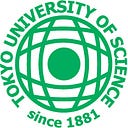Breakthrough: Natural Bacteria Compound Offers Safe Skin Lightening
Scientists identify the compound that can inhibit the enzyme responsible for excess melanin accumulation in human skin and confirm its mechanism
Melanocytes are responsible for producing melanin, a pigment that shields human skin from the harmful effects of ultraviolet radiation. However, issues arise when the mechanism for renewing dead cells, which helps regulate melanin accumulation, malfunctions. In a recent study, researchers from Japan discovered that the metabolite cyclo(L-Pro-L-Tyr) from Corynebacterium tuberculostearicum effectively inhibits tyrosinase, the enzyme crucial for melanin synthesis. These findings suggest promising applications for cyclo(L-Pro-L-Tyr) as a safe additive in cosmetics.
Melanin protects the skin — the body’s largest organ and a vital component of the immune system — from the damaging effects of ultraviolet (UV) radiation. When the skin is exposed to UV radiation, melanin production is stimulated in melanocytes, with tyrosinase playing a key role in the biosynthetic pathway. However, disruptions in this pathway caused by UV exposure or aging can lead to excess melanin accumulation, resulting in hyperpigmentation. To address this, tyrosinase inhibitors that suppress melanin synthesis have become valuable in the cosmetic industry. Unfortunately, some of these compounds, such as hydroquinone, have been found to be toxic to human skin, causing issues like vitiligo-like symptoms and rashes. Consequently, hydroquinone is no longer recommended for use.
The increasing demand for safer alternatives has sparked a race to discover tyrosinase inhibitors from microbes that produce compounds with low toxicity. Recently, researchers at Tokyo University of Science (TUS) identified a promising tyrosinase inhibitor from Corynebacterium tuberculostearicum (C. tuberculostearicum), a bacterium commonly found on human skin. The study, led by Assistant Professor Yuuki Furuyama from the Department of Applied Bioscience at TUS, was published in the International Journal of Molecular Sciences on July 4, 2024. Co-authors Ms. Yuika Sekino and Prof. Kouji Kuramochi, also from TUS, contributed to the findings. Dr. Furuyama elaborated on their approach: “Bacteria that reside on our skin and evade immune responses often become commensals, neither benefiting nor harming us. We chose to investigate metabolites produced by these commensal bacteria for their potential as tyrosinase inhibitors. These natural skin-derived products exhibit low toxicity, making them inherently safer.”
After screening over 100 skin-derived bacteria, the team identified C. tuberculostearicum as a producer of a potent tyrosinase-inactivating compound. Their assays utilized tyrosinase from the mushroom Agaricus bisporus to confirm inhibition. Subsequent experiments pinpointed the active compound as cyclo(L-Pro-L-Tyr). The researchers then conducted three-dimensional (3D) docking simulations to elucidate how cyclo(L-Pro-L-Tyr) functions.
“Our goal was to understand how cyclo(L-Pro-L-Tyr) disrupts tyrosinase activity,” explained Dr. Furuyama. “In melanin biosynthesis, tyrosinase initially converts L-tyrosine (L-Tyr) to dihydroxyphenylalanine (DOPA) quinone, which then transforms into DOPA chrome. Ultimately, DOPA chrome polymerizes to produce melanin. Our findings revealed that cyclo(L-Pro-L-Tyr) mimics L-Tyr, binding to and obstructing the substrate-binding pocket of mushroom tyrosinase. This interference renders the enzyme inactive.” Dr. Furuyama emphasized the significance of their discovery: “Our study is the first to identify and elucidate the mechanism of a tyrosinase inhibitor derived from a skin bacterium.”
The team is highly optimistic about the potential of their discovery. Scientific literature supports the non-toxic nature of cyclo(L-Pro-L-Tyr) to human cells, underscoring its suitability as a skin probiotic for combating hyperpigmentation. Moreover, the metabolite exhibits additional beneficial properties such as antimicrobial, antioxidant, and anticancer activities, further enhancing its therapeutic potential across various applications. Of particular interest is the team’s success in extracting substantial quantities of cyclo(L-Pro-L-Tyr) from C. tuberculostearicum, paving the way for potential industrial-scale production. This capability is crucial for ensuring the financial feasibility of manufacturing active ingredients on a large scale.
Despite the promising outlook, Dr. Furuyama acknowledges that there are significant hurdles to overcome before these natural active ingredients can reach consumer shelves. He emphasizes the need for extensive research to precede the widespread adoption of cyclo(L-Pro-L-Tyr) in cosmetics. “Before cyclo(L-Pro-L-Tyr) can be widely used further studies are essential. Testing with human tyrosinase, which differs structurally from mushroom tyrosinase, is crucial. Detailed analyses of its mechanisms of action are also necessary to ensure efficacy and safety,” explains Dr. Furuyama.
In essence, while the potential is considerable, thorough scientific validation and understanding are prerequisites for the eventual application of cyclo(L-Pro-L-Tyr) in skincare products.
Reference
Title of original paper: Cyclo(L-Pro-L-Tyr) isolated from the human skin commensal Corynebacterium tuberculostearicum inhibits tyrosinase
Journal: International Journal of Molecular Sciences
DOI: 10.3390/ijms25137365
About The Tokyo University of Science
Tokyo University of Science (TUS) is a well-known and respected university, and the largest science-specialized private research university in Japan, with four campuses in central Tokyo and its suburbs and in Hokkaido. Established in 1881, the university has continually contributed to Japan’s development in science through inculcating the love for science in researchers, technicians, and educators.
With a mission of “Creating science and technology for the harmonious development of nature, human beings, and society,” TUS has undertaken a wide range of research from basic to applied science. TUS has embraced a multidisciplinary approach to research and undertaken intensive study in some of today’s most vital fields. TUS is a meritocracy where the best in science is recognized and nurtured. It is the only private university in Japan that has produced a Nobel Prize winner and the only private university in Asia to produce Nobel Prize winners within the natural sciences field.
Website: https://www.tus.ac.jp/en/mediarelations/
About Assistant Professor Yuuki Furuyama from Tokyo University of Science
Yuuki Furuyama earned his PhD from the Department of Applied Biological Sciences at Tokyo University of Science (TUS) in 2018 and currently serves as an Assistant Professor in the department. His research focuses on applied microbiology, natural products chemistry, and chemical biology. Since 2021, he has authored eight peer-reviewed articles, showcasing his contributions to the field. In recognition of his achievements, Dr. Furuyama was honored with the Biotech Grand Prix 2023 Rohto Award, highlighting his significant impact in biotechnology and related disciplines.
Funding information
This research was supported by JSPS KAKENHI grant number 22K14814.
Media contact
Yoshimasa Iwasaki
Public Relations Division, Tokyo University of Science
Email: mediaoffice@admin.tus.ac.jp
